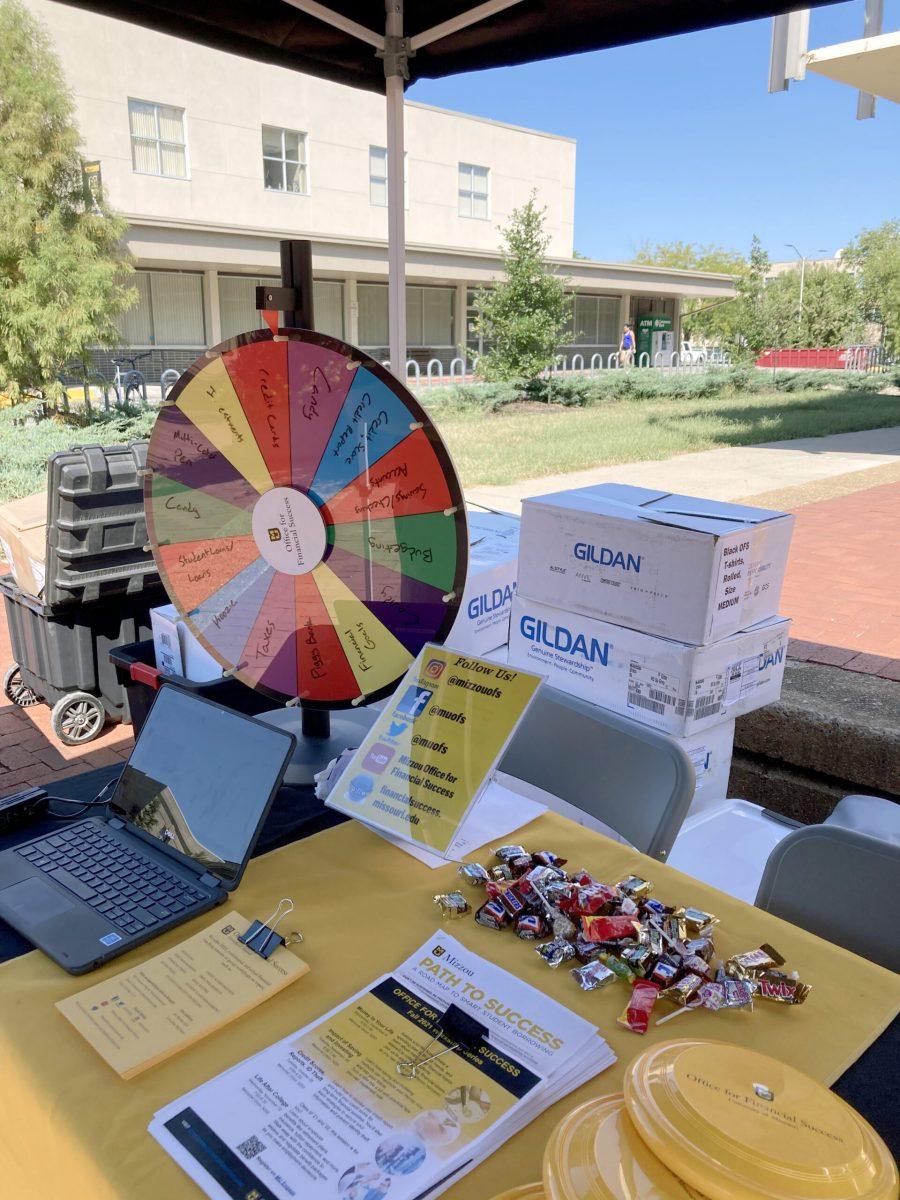The Office for Financial Success and the Office of Student Financial Aid hosted a financial literacy and aid fair Sept. 15 on Lowry Mall from 11 a.m. to 2 p.m.
The OFS and OFA set up several booths along Lowry Mall to educate students about their college finances. One included a Wheel of Fortune-esque game with prizes such as pens, candy and infographics with advice on doing taxes for the first time. At other booths, experts sat behind their tables, ready with answers to common questions on paying loans, gaining residency and applying to scholarships.
Alex Embree, OFA project manager and student support services specialist, ran the OFA booth.
“In a nutshell, the OFS helps students learn how to make informed financial decisions that will help them both now and in their future,” Embree said.
Lauren Graham, an MU freshman who attended the fair, wished she spent more time looking for and applying to different scholarships for out-of-state students.
“Today at the fair I hope to gain a better understanding of the scholarship system so that I can potentially get more aid next year, so I won’t have so much student debt,” Graham said.
According to a statistic by the OFS, the mean debt accrued by undergraduate students is a total of $21,884 in student loans. Meanwhile, the U.S. Census Bureau reported a 3.2% decrease in the median incomes for U.S. family households between 2019 and 2020. In the U.S., the bureau reported the first overall significant decline in median income since the year 2011.
This trend of rising debt and declining household incomes has real financial and mental implications for students and parents. According to a 2021 study commissioned by Citizens Financial Group, 94% of parents with a child in college feel an increased burden from their child’s college debt, and another 70% worry the investment will not pay off.
At the OFS booth, Bridgette Jackson, student financial manager and MU senior stood ready with a smile and helpful tip.
“Budgeting is super helpful to manage your long term goals and short term goals,” Jackson said, “You can get your Shein order, you can get your extra round at Harpo’s, just make sure you have a budget and a plan that you update regularly, because it changes all the time.”
Jackson said her favorite method of budgeting is using a Google spreadsheet with separate financial plans she edits weekly and monthly. The OFS offers a ready-made template for budgeting on their website that can be accessed by making an appointment with a financial advisor through MU Connect, or emailing [email protected] to receive one directly from the office.
Embree also advised that building a savings is one of the easiest and most impactful ways to improve your financial future.
“Build a savings habit now to grow your emergency savings,” Embree said. “Saving a small amount each month is okay. An initial savings goal for college students for the year is usually $500 to $1,000.”
As far as advice on what to avoid, Embree advised against using a credit card as a loan in anticipation of future earnings. In other words, credit cards should only be used if you have money in the bank now to pay it off.
“Using credit wisely will help raise your credit score, while avoiding debt,” Embree said.
To learn more in-depth information on saving and other financial skills in college, Embree said students should take a personal financial planning class.
“[It’s]a valuable investment in your future,” Embree said. “If you have a general elective or social/behavioral science graduation requirement to fulfill, take a personal finance course. Options at Mizzou include Personal Financial Planning 1183 or 4483, both one general elective credit, or Personal Financial Planning 2183, a three-credit social/behavioral science option.”
Visit the OFS website for more information on upcoming events, or to make an appointment with a personal financial advisor.
Edited by Emmet Jamieson | [email protected]
Second Data Read done by Olivia Gyapong | [email protected]













